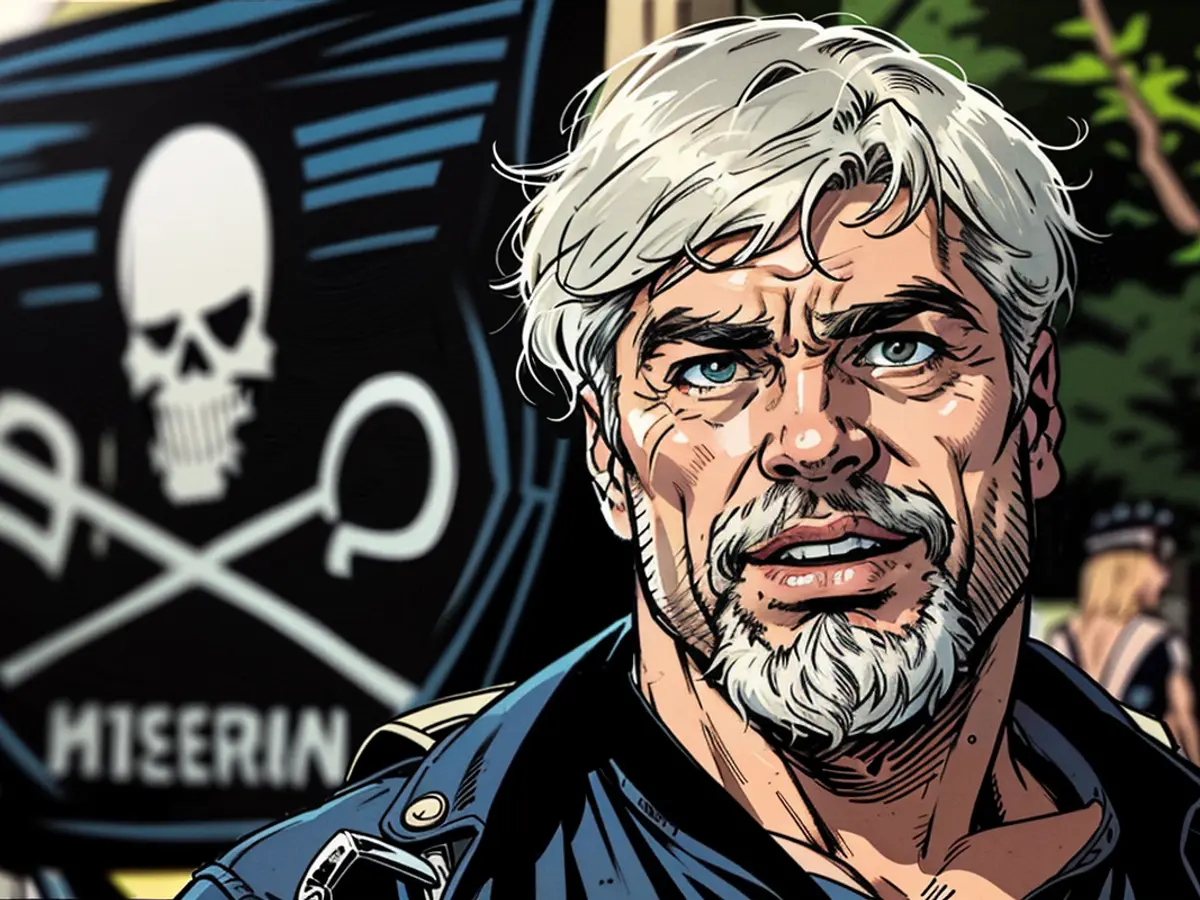Veteran anti-whaling activist Paul Watson could be extradited to Japan after arrest in Greenland, his foundation says
The 73-year-old American-Canadian dual national was detained by Danish police when his ship docked in the Greenland capital Nuuk to refuel, according to the Captain Paul Watson Foundation (CPWF).
The ship John Paul DeJoria and a 25-member crew were en route from Dublin, Ireland to the North Pacific to intercept Japan’s newly launched $48 million factory whaling ship the Kangei Maru, the organization said.
“We were immediately boarded by a SWAT team and Danish police who wasted no time in cuffing Paul Watson, our founder, and arresting him on a decades old Red Notice at the request of Japan,” Ship Operations Director Locky MacLean said in a video message onboard the John Paul DeJoria.
In the video, police can be seen boarding the vessel and leading Watson away in handcuffs.
CNN has reached out to the Danish Police in Greenland for comment. Citing a police statement, the Associated Press reported that Watson will be brought before a district court with a request to detain him before a decision is made on his possible extradition to Japan.
Watson’s foundation believes the arrest “is connected to a previous Red Notice issued for Watson’s anti-whaling activities in the Antarctic.”
“This development comes as a surprise since the Foundation’s lawyers had reported that the Red Notice had been withdrawn. However, it appears that Japan had made the notice confidential to facilitate Paul’s travel for the purpose of making an arrest,” the statement continued.
CPWF said it “believes the reactivation of the Red Notice against Captain Watson is politically motivated, coinciding with the launch of the new factory ship.”
The Japan Coast Guard (JCG) told CNN it was aware that Greenland police have issued a statement about Watson and said, “We will continue to respond appropriately in coordination and cooperation with related organizations.”
Interpol issued a Red Notice for Watson in September 2012, two years after the JCG issued an arrest warrant for him. CNN has contacted Interpol for more information.
An early member of Greenpeace, Watson went on to found the Sea Shepherd Conservation Society, an environmental group famous for tracking, exposing and occasionally ramming Japanese whalers. His attempts to disrupt Japanese whalers at sea gained him fame through Animal Planet’s “Whale Wars” TV show.
His activities have also previously landed him in legal trouble. In 2012, he was detained in Germany on an international arrest warrant issued by Costa Rica, which accused him of endangering a fishing vessel off the coast of Guatemala in 2002. He skipped bail but denied wrongdoing in that case.
In 2013, the Japan’s Institute of Cetacean Research and the Japanese firm Kyodo Senpaku Kaisha secured a US District Court injunction against Watson and Sea Shepherd, which prohibited him and his group from coming within 500 yards of the plaintiffs on the open sea.
Due to the injunction, Watson resigned as president and executive director of the conservation society in the United States and as president of the society in Australia.
In June, Kyodo Senpaku launched a brand-new whaling “mothership” – the Kangei Maru – a 370-foot, 9,300-ton vessel equipped with state-of-the-art drones able to travel a reported 100 kilometers (62 miles) to allow crews to quickly locate and kill whales.
The new ship replaces the Nisshin Maru, the infamous whaling factory vessel dubbed by activists as a “floating slaughterhouse” that was decommissioned in 2020 after more than 30 years of service, during which it frequently clashed with anti-whaling activists.
Watson told CNN ahead of the launch that he believes the ship’s high-powered features – including a cruising range of 13,000 kilometers (more than 8,000 miles) and its ability to sail for up to 60 days – suggests that Japan could set its sights on whales far beyond its northern waters.
“Japan has never given up on its whaling ambitions,” Watson told CNN at the time. “The only purpose of a vessel like that is so it can travel long distances ... to hunt whales.”
Japan is one of three countries, along with Norway and Iceland, that continues to hunt whales, and officials argue that the industry is an important part of its culture and history – and also provides food security.
The Kangei Maru boasts a slipway large enough to haul 85-foot whales from the sea that leads to an indoor flensing deck the size of two basketball courts.
There, workers will strip away the blubber before cutting up the whale flesh on enormous cutting boards, before vacuum-packing and storing the meat in 40 industrial freezers, ready for sale.
Takaaki Sakamoto, director of the Whaling Affairs Office in Japan’s Fisheries Agency, told CNN that Japan sent ships to the Antarctic last year to collect numbers and skin surface samples, but those expeditions did not involve killing whales. He said they planned to return this year to do the same.
Hideki Tokoro, president of Kyodo Senpaku, told CNN the Kangei Maru is not planning on killing whales beyond Japanese waters because it doesn’t make economic sense.
Commercial whaling was banned under a 1986 International Whaling Commission moratorium. But Japan has used a loophole to continue hunting whales legally for what it claims is scientific research.
In 2018, it announced its withdrawal from the IWC and resumed commercial whaling months later in defiance of international criticism.
“We are proud of catching whales and are very proud of this ship which will allow us to begin offshore mothership-style whaling this year,” Tokoro told reporters in June.
CNN’s Yumi Asada and Heather Chen contributed reporting.
The Kangei Maru, Japan's new factory whaling ship, is a cause of concern for environmental groups like the Captain Paul Watson Foundation, as it was the target of the John Paul DeJoria's interception in Europe. The foundation believes that the reactivation of the Red Notice against Captain Watson, known for his anti-whaling activities in Europe and elsewhere, is politically motivated.







